Potassium occurs naturally in many foods and supports a regular heartbeat, ensures proper muscle and nerve function, and aids protein synthesis. Many people don't get enough in their diet, leaving them at risk of developing potassium deficiency, symptoms of which include muscle cramps and arrhythmia.
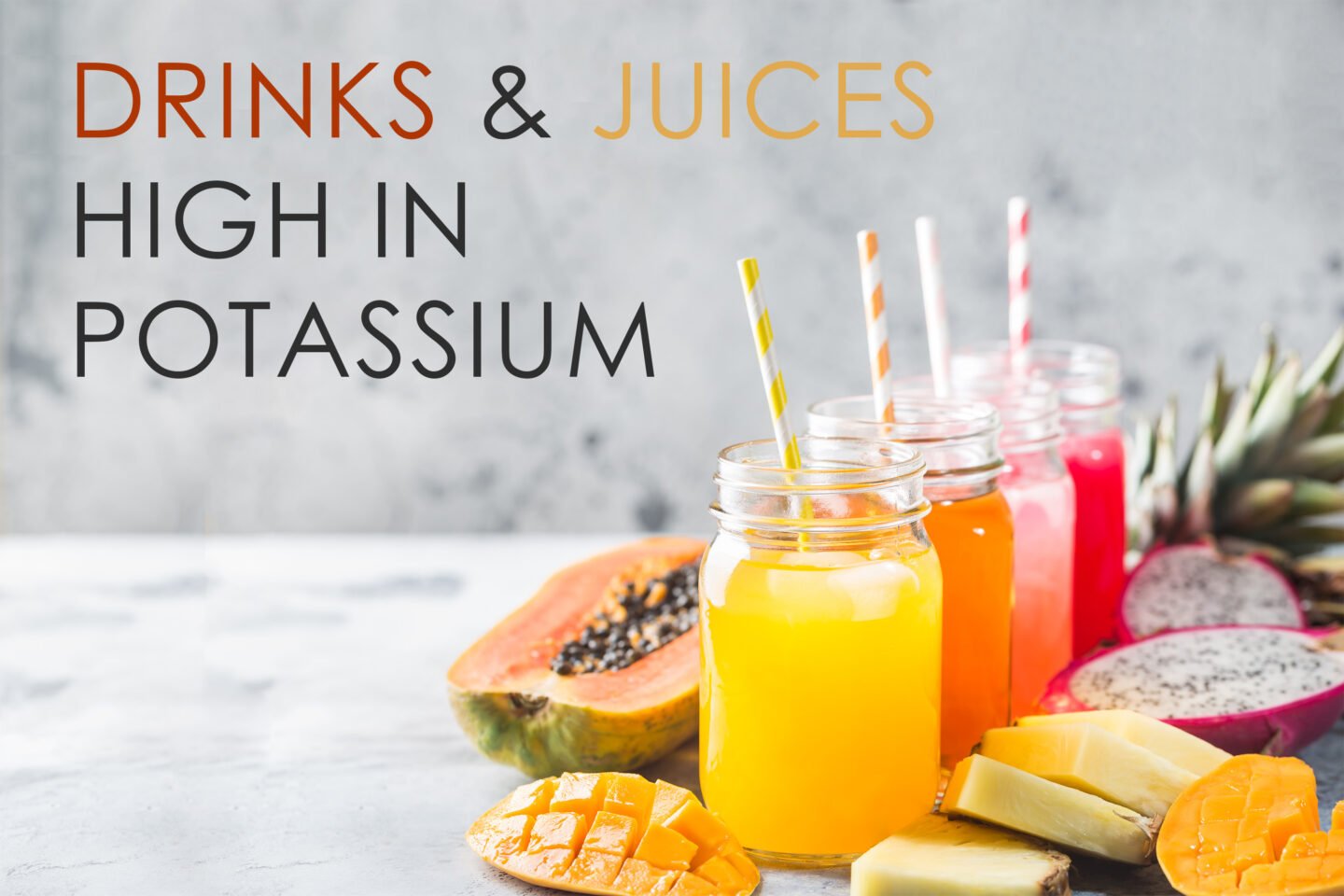
If you want to increase your potassium intake, carrot juice, passion fruit juice, prune juice, tomato juice, apricot juice, orange juice, tangerine juice, and grapefruit juice are some of the most delicious juices you can drink.
Read on as I discuss how these fruit juices can boost your potassium levels.
Some of the links in this article are affiliate links, and I'll make a small commission if you decide to buy something through them. Thanks!
Table of Contents
1. Carrot Juice
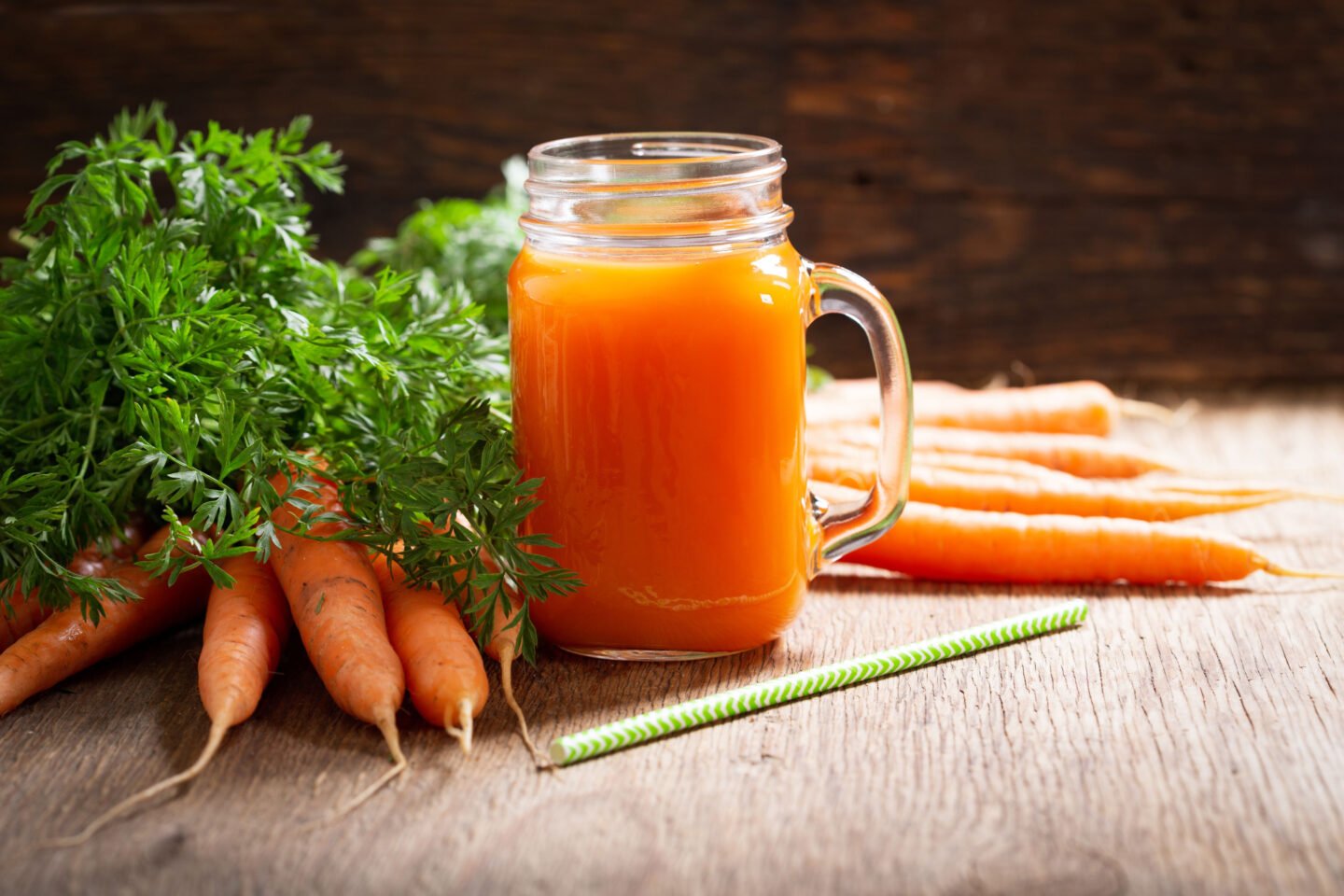
Carrot juice is exceptionally high in potassium, with a 3.5 oz (100 g) serving containing 292 mg, around 6% of the recommended daily intake of 3,500-4,700 mg.
It's also full of vitamins B6 and C, iron, calcium, and fiber.
You can easily make it yourself, even without a juicer, by using a simple blender.
If I don't feel like making it myself, here's my favorite brand: No products found..
Don't know which foods are high in potassium? Read our article, 15 Best Food Sources of Potassium. We also have a guide to this important mineral: Potassium 101: All You Need To Know About Potassium.
2. Passion Fruit Juice
Passion fruit is loaded with vitamin C, iron, and magnesium, and a 3.5 oz (100 g) serving of juice contains 278 mg of potassium, around 6% of the recommended daily intake.
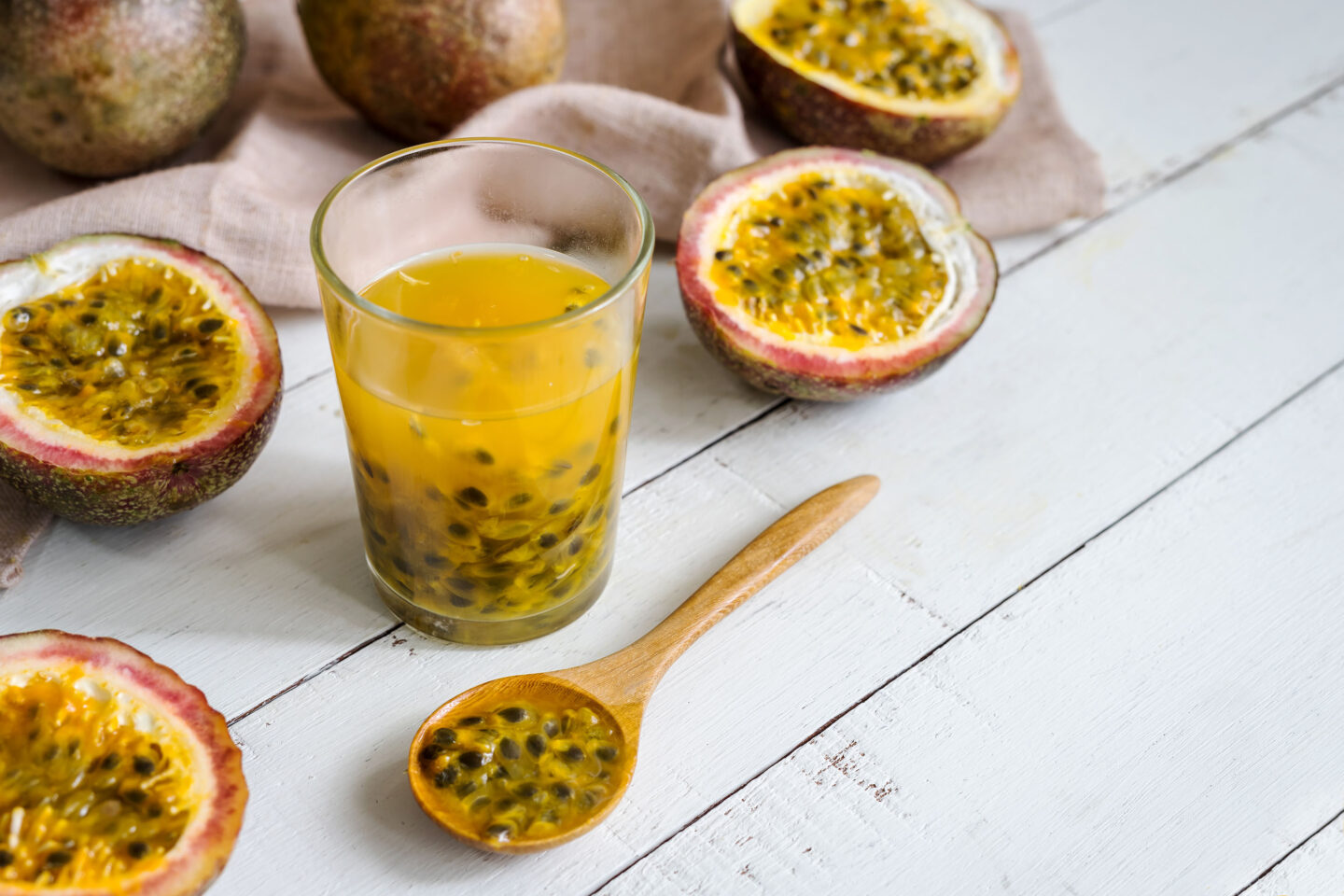
A cup of passion fruit juice contains 687 mg of potassium, around 15% of the recommended daily intake.
Homemade passion fruit juice is easy to prepare; scoop out the pulp and mix it with water and some sugar or sweetener.
Many passion fruit juices in stores are mixed with other juices, but Maguary Passion Fruit Juice Concentrate is delicious.
3. Prune Juice
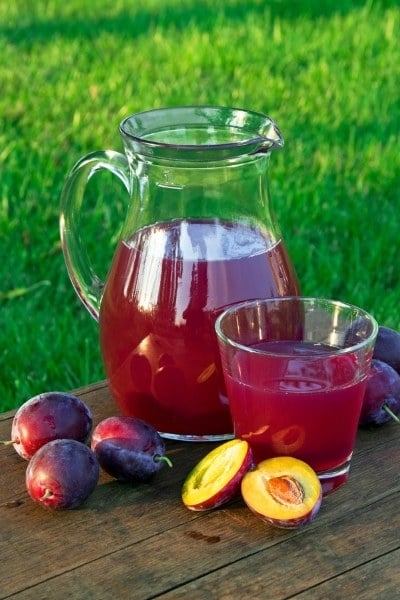
Prunes are full of fiber, vitamin K, magnesium, copper, and manganese, and a 3.5 oz serving of canned prune juice contains 276 mg of potassium, 6% of the recommended daily intake.
Prune juice is also high in iron, and my favorite is POMONA Organic Pure Plum Juice.
4. Tomato Juice
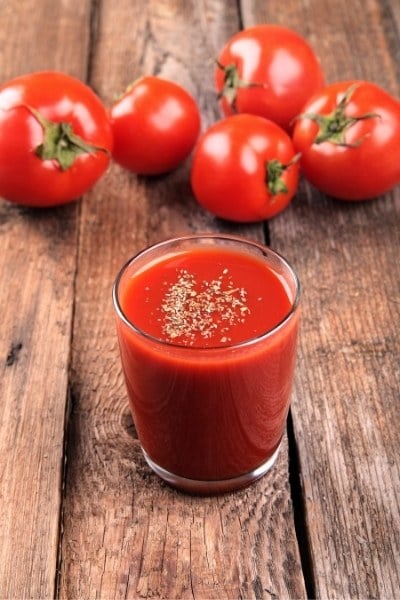
Tomato juice is high in potassium, with a 3.5 oz serving containing 229 mg, around 5% of the recommended daily intake.
It's also high in B vitamins, vitamin C, iron, and antioxidants.
Tomato juice available everywhere, and two of my favorites are Sacramento Tomato Juice and V8 Original Low Sodium Spicy Hot 100% when I want something spicier.
5. Orange Juice

Oranges are famously high in vitamin C but also contain good amounts of vitamin A, folate, antioxidants, and thiamine.
A 3.5 oz (100 g) serving of orange juice contains 200 mg of potassium, around 4% of the recommended daily intake.
Like tomato juice, orange juice is readily available in stores and on Amazon.
6. Apricot Juice
Apricot juice contains 182 mg of potassium in a 3.5 oz serving, almost 4% of the recommended daily intake.
It's also high in fiber, calcium, and iron and contains trace amounts of manganese, bromine, sulfur, sodium, and cobalt.
7. Tangerine Juice
Although tangerine juice isn't as popular as orange, it's high in thiamin, riboflavin, pantothenic acid, vitamin B6, and vitamin C.
A 3.5-oz serving contains 178 mg of potassium, around 4% of the recommended daily intake.
Tangerine juice contains antioxidants that support your immune and cardiovascular systems and contribute to brain health.
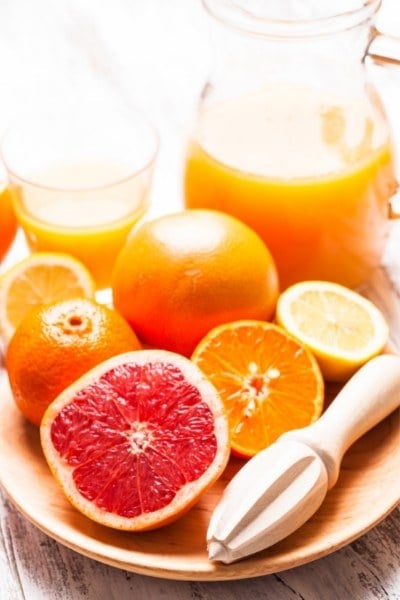
8. Grapefruit Juice
Grapefruit juice is delicious and highly nutritious, with 3.5 oz containing 162 mg of potassium, around 3% of the recommended daily intake.
It's also loaded with vitamin C, B vitamins, magnesium, calcium, and iron.
Whenever it's available, I buy Ocean Spray's 100% Grapefruit Juice.
Which Juice To Choose?
Those with 100% fruit juice and no added sugar are the best for you, and not all are high in calories.
Vegetable juices can be high in sodium, too much of which may negatively impact your health.
Conclusion
The best juices to boost your potassium intake are carrot, passion fruit, prune, and tomato, but all those on this list are excellent sources of potassium, delicious, and good for you.
Can You Check Your Potassium Level at Home?
Source: USDA


